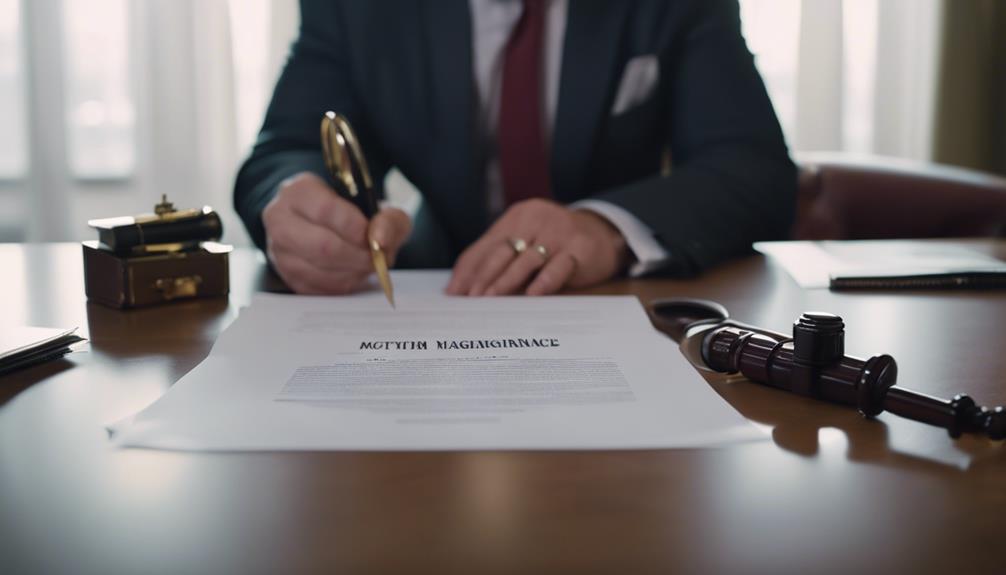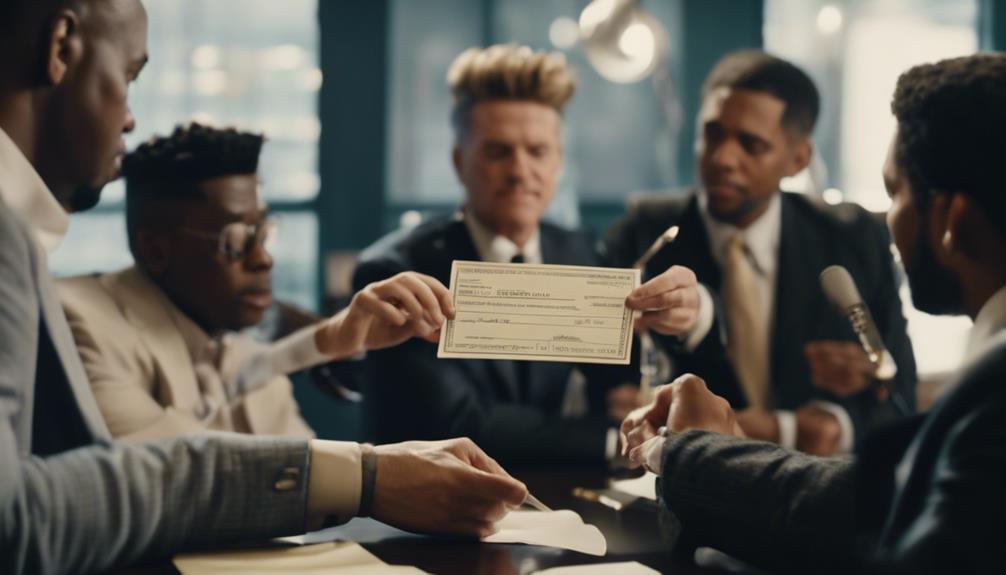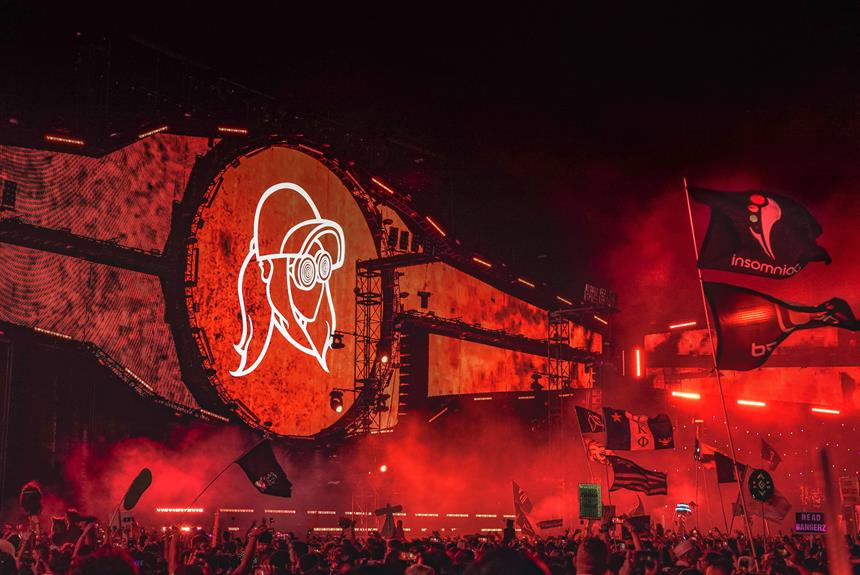In the fast-paced world of entertainment, safeguarding your creative work is paramount. Professional entertainment lawyers play a crucial role in ensuring that your artistic endeavors are protected from various threats.
From negotiating intricate contracts to navigating the complexities of copyright and trademark laws, these legal experts offer a comprehensive shield for your intellectual property.
But that’s just the tip of the iceberg. Stay tuned to discover the lesser-known yet equally vital ways these professionals can safeguard your creative output.
Contract Negotiation

In the realm of creative endeavors, the process of contract negotiation plays a pivotal role in safeguarding the rights and interests of artists and creators. Entertainment lawyers specialize in ensuring legal compliance during these negotiations, meticulously reviewing contracts to protect their client’s rights. Legal compliance is essential to prevent any misunderstandings or disputes that may arise in the future. Moreover, effective client communication is paramount throughout the negotiation process. Entertainment lawyers act as intermediaries between their clients and the other parties involved, ensuring that all terms and conditions are clearly understood and agreed upon.
Client communication is a delicate art that requires both legal expertise and interpersonal skills. Entertainment lawyers must convey complex legal concepts in a manner that clients can comprehend, empowering them to make informed decisions. By fostering open and transparent communication, lawyers can build trust with their clients and provide the necessary guidance to navigate the intricacies of contract negotiation successfully.
Copyright Registration
Securing copyright registration is a fundamental step in protecting the intellectual property rights of creatives and content creators. By obtaining copyright registration, individuals establish legal rights to their creative works, offering protection against unauthorized use or reproduction. This registration provides creators with a formal record of their ownership, making it easier to prove ownership in case of copyright disputes.
Copyright registration safeguards various forms of creative expression, including music, literature, art, and software. It grants creators exclusive rights to reproduce, distribute, perform, display, and modify their works. In the event of infringement, copyright registration strengthens the creator’s position in legal proceedings by providing concrete evidence of ownership.
Moreover, copyright registration serves as a deterrent to potential infringers, as it puts them on notice of the creator’s legal rights. This proactive measure can help prevent unauthorized use of intellectual property and discourage infringement attempts. Overall, copyright registration is a crucial tool in safeguarding the legal rights and intellectual property of creatives and content creators.
Trademark Protection

Trademark protection is a vital aspect of safeguarding intellectual property rights for businesses and individuals. By securing trademarks for logos, brand names, and slogans, creators establish ownership over their unique identifiers, ensuring brand awareness and preventing unauthorized use by competitors. Entertainment lawyers play a crucial role in guiding clients through the trademark registration process, conducting searches to avoid infringement issues, and enforcing trademark rights against violators.
Maintaining a strong trademark portfolio is essential for building brand recognition and consumer trust. Through proper registration and monitoring, individuals and businesses can protect their intellectual property from dilution or misappropriation. Trademarks not only distinguish products and services in the marketplace but also serve as valuable assets that contribute to the overall value of a business.
In the realm of entertainment, trademarks play a significant role in differentiating artists, merchandise, and media content. By working closely with entertainment lawyers to navigate the complexities of trademark law, creatives can safeguard their brand identity and maintain control over their intellectual property.
Licensing Agreements
For creators and businesses looking to expand their reach and monetize their intellectual property, navigating licensing agreements is a crucial step in establishing mutually beneficial partnerships. Licensing agreements grant permission to others to use intellectual property under specified conditions. These agreements outline the rights and responsibilities of both parties, including the scope of use, duration, royalties, and any restrictions.
Understanding the concept of fair use is essential when drafting licensing agreements. Fair use allows limited use of copyrighted material without the creator’s permission for purposes such as criticism, commentary, news reporting, teaching, scholarship, or research. It’s crucial to define what constitutes fair use within the agreement to avoid any misunderstandings or legal issues.
Additionally, creators should be aware of works in the public domain, which are not protected by intellectual property laws and can be used by anyone without permission. When entering into licensing agreements, clarifying the status of the intellectual property as either in the public domain or copyrighted is essential for both parties to protect their rights and interests.
Royalty Collection

Ensuring proper royalty collection is a fundamental aspect of licensing agreements in the realm of intellectual property. Entertainment lawyers play a crucial role in safeguarding their clients’ rights by overseeing the collection of royalties from various revenue streams. One key area where royalties are collected is through performance rights. These rights pertain to the compensation owed to creators when their work is performed or broadcasted publicly, such as in concerts, on television, or over the radio.
Entertainment lawyers work diligently to ensure that their clients receive fair compensation for the use of their creative works. They negotiate favorable royalty rates and monitor the collection process to guarantee that all due payments are received. By staying informed about industry standards and regulations, lawyers can effectively protect their clients’ financial interests and intellectual property rights.
In essence, royalty collection is a vital mechanism that allows creators to benefit from their artistic endeavors and helps them sustain their livelihood in the competitive entertainment industry.
Dispute Resolution
Amidst the complexities of the entertainment industry, effective dispute resolution mechanisms are essential for resolving conflicts and preserving the integrity of creative works. Entertainment lawyers play a crucial role in helping artists, producers, and other industry professionals navigate disputes that may arise during the creation or exploitation of creative works.
Mediation services offer a collaborative approach to resolving conflicts, allowing parties to negotiate and reach mutually acceptable solutions with the assistance of a neutral third party. This informal process can help preserve relationships and avoid costly litigation.
On the other hand, arbitration options provide a more formal alternative to traditional court proceedings. In arbitration, parties present their cases to a neutral arbitrator or panel, who then makes a binding decision. This can be a faster and more cost-effective way to resolve disputes compared to lengthy court battles.
Talent Representation

Navigating the competitive landscape of the entertainment industry, talent representation forms a critical component for artists seeking to secure opportunities and protect their interests. Talent representatives play a pivotal role in negotiating brand endorsements and promotion deals for their clients, helping them secure lucrative partnerships that align with their image and career goals.
These professionals also work tirelessly to ensure their clients receive optimal media exposure, leveraging their network of connections to secure valuable networking opportunities that can lead to career advancement.
Privacy Rights
Privacy rights in the entertainment industry are crucial for safeguarding the personal information and autonomy of individuals involved in creative endeavors. Entertainment lawyers play a vital role in ensuring that data protection measures are in place to prevent unauthorized access to sensitive information. This includes safeguarding personal details, financial records, and other confidential data from being misused or disclosed without consent.
Another key aspect of privacy rights in entertainment law is the protection of image rights. Image rights refer to the control individuals have over the commercial use of their name, likeness, and personal attributes. Entertainment lawyers help creatives secure their image rights to prevent unauthorized use of their identity for commercial purposes, such as in endorsements or merchandise.
Branding Strategy

Crafting a well-defined branding strategy is essential for creatives in the entertainment industry to establish a strong and recognizable identity in the market. In today’s competitive landscape, media partnerships and influencer collaborations play a vital role in enhancing brand visibility and engagement.
Media partnerships offer creatives the opportunity to reach a broader audience through strategic collaborations with platforms such as television networks, streaming services, and digital media outlets. By aligning with established media channels, creatives can leverage their reach and credibility to enhance brand recognition and connect with new fans.
Influencer collaborations have also become a powerful tool for creatives to amplify their brand message. By partnering with influencers who have a strong following and influence in their respective niches, creatives can tap into new audiences and drive engagement. These collaborations can range from sponsored content to joint projects, providing creatives with a unique way to connect with their target demographic and expand their brand presence in the industry.
Litigation Support
For individuals in the entertainment industry facing legal challenges or disputes, seeking litigation support from experienced entertainment lawyers can be crucial in protecting their creative work and navigating complex legal proceedings. Litigation support involves a range of services provided by entertainment lawyers to assist clients in resolving disputes, protecting their intellectual property rights, and achieving favorable outcomes.
One key aspect of litigation support is settlement negotiation. Entertainment lawyers skilled in this area can help their clients reach mutually beneficial settlements without the need for a lengthy and costly trial. By leveraging their negotiation expertise and knowledge of industry practices, these lawyers can work towards resolving disputes efficiently while safeguarding their clients’ interests.
Moreover, in cases involving intellectual property, such as copyright infringement or unauthorized use of creative works, entertainment lawyers play a vital role in protecting their clients’ rights. Through strategic legal action and representation, they can help creators enforce their intellectual property rights and secure fair compensation for any infringements.
Frequently Asked Questions
How Can Entertainment Lawyers Help With Social Media and Influencer Agreements?
Entertainment lawyers specialize in negotiating terms and ensuring compliance in social media and influencer agreements. They provide legal guidance, review contracts, and safeguard clients’ interests by ensuring agreements are fair, legally sound, and protect creative work.
What Are the Key Elements to Consider When Drafting a Non-Disclosure Agreement for Creative Projects?
When drafting a non-disclosure agreement for creative projects, key elements to consider include confidentiality obligations, enforcement mechanisms to ensure compliance, scope limitations to define protected information, and exclusivity provisions to prevent unauthorized sharing of sensitive material.
How Can Entertainment Lawyers Assist With International Copyright and Trademark Protection?
Entertainment lawyers provide crucial support in navigating the complexities of international copyright and trademark protection. They assist in drafting international contracts, ensuring compliance with regulations, and enforcing rights to safeguard creative assets globally.
What Steps Can Be Taken to Enforce Intellectual Property Rights Against Infringement in the Digital Age?
In the digital age, copyright enforcement against online piracy and internet infringement is crucial. Implementing robust measures to protect digital rights is essential to safeguard intellectual property. Entertainment lawyers play a pivotal role in enforcing these rights effectively.
How Do Entertainment Lawyers Navigate the Complexities of Licensing Music for Film and Television Projects?
Entertainment Lawyers proficiently navigate the complexities of licensing music for film and television projects. Their expertise includes negotiating contracts and securing music rights to ensure compliance with legal requirements and protect the creative interests of their clients.
Conclusion
In conclusion, entertainment lawyers play a crucial role in protecting creative works through:
- Contract negotiation
- Copyright registration
- Trademark protection
- Licensing agreements
- Royalty collection
- Talent representation
- Privacy rights
- Branding strategy
- Litigation support
Their expertise ensures that artists and creators are able to safeguard their intellectual property and navigate the complex legal landscape of the entertainment industry.










